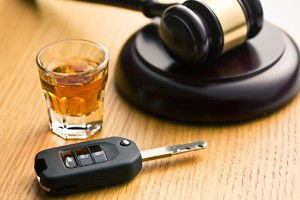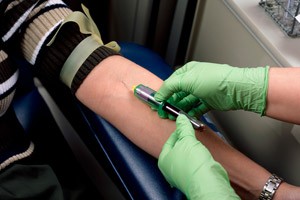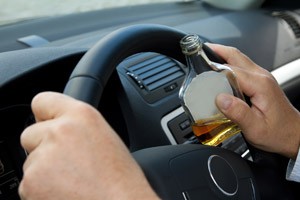When you think of Halloween, do you think of kids and candy and costumes? Or, like many adults, has Halloween also become a time for mature fun, partying, and maybe one too many drinks?
If you are part of the latter, you might not be surprised to hear that over a third of adults plan to attend a party at the end of this month, according to a survey by the National Retail Federation. It is also well-known in the restaurant/bar industry that Halloween is the second-best holiday, behind only Christmas, in terms of dollars spent on drinking out.
Of course, if both the retail and food-service industries are aware of these facts, then so are the police departments and government agencies patrolling the roads to keep them safe at the end of October. Expect officers and patrolmen to be on high-alert for anyone showing signs of intoxicated driving for the rest of the month – and for good reason, too, as the National Highway Traffic Safety Administration (NHTSA) found that more than half (51%) of all national fatalities occurring on Halloween night from 2008-2012 occurred as a result of a drunk driving-related crash.
What Nights Should You Be Most Aware Of?
This year, Halloween falls on Tuesday, October 31. For all the reasons stated above, there will be many drunk drivers on the road, particularly after the trick-or-treaters finish making their rounds. At the same time, the Friday and Saturday nights before and after the holiday are also well-known nationwide for being a particularly deadly time, because those are the nights when parties, bar crawls, and other festivities are most likely to occur. Towns and municipalities across the state will be strictly enforcing all driving laws and looking out for suspicious activity for the rest of the month, but especially on those days.
Where Will Heightened DUI and DWI Enforcement Occur?
Expect police officers to be on the look-out across the state, but especially in places where there will be many teenagers and young-adults. Bars and neighborhoods in or around where colleges will be the most likely settings for a drunk driving arrest. This is because Halloween parties that include excessive drinking are especially popular amongst young adults in their 20s and early 30s – and males ages 21-34 are the most likely demographic to be involved in a fatal, intoxication-related accident around Halloween.
Other popular locations include near any large bars or locations where a known Halloween party will be occurring. Although this might seem obvious, municipalities purposely create DUI checkpoints near known drinking establishments – in the hopes of deterring drinking and driving as well as in order to catch anyone who might be too intoxicated to drive.
What Precautions Should You Take
If you plan on going our drinking or partying this Halloween season, the best thing you can do for yourself and your loved ones is to have a plan to get home safe. If you cannot designate a reliable or sober driver, be prepared to call a taxi, Uber, or Lyft to get home. If you drive to the bar, most bars will have no problem with you leaving the car in the parking lot overnight if you are too drunk to drive home. Remember, if you are found sleeping in your car in the bar parking lot, a police officer may think that you were preparing to drive drunk, even if your plan was to sleep it off.
The most important thing to remember is that, even if you think you can get home safely, if you are pulled over or stopped at a police checkpoint with a blood alcohol content (BAC) of .08% or greater, or if a police officer smells alcohol on your breath and thinks you are showing visible signs of intoxication, you could lose your license, be fined, go to jail, and otherwise lose your ability to provide for you family and loved ones. These are extremely serious consequences that could affect you for a lifetime.
If you or someone you know is arrested or charged with drunk driving, you should contact an experienced lawyer immediately. A drunk driving attorney will be able to review your case and may even be able to have the charges dropped completely.
New Jersey DUI-DWI Lawyer Edward M. Janzekovich Can Help if You’ve Been Charged with Drunk Driving
When you or someone you know gets arrested or charged with driving while intoxicated, things could feel extremely scary. You probably won’t know what to do or even what consequences you might be facing. An experienced DUI/DWI attorney can help by reviewing your case, explaining the potential penalties, and presenting the best case in your defense. A good DUI attorney can make all the difference. To speak with an experienced New Jersey DWI lawyer about your situation, call us at 732-257-1137 or contact us online today. We serve clients throughout the state of New Jersey.







 Although it is unlikely, there are rare times when a driver must face charges for multiple drunk driving offenses at the same time. This can result from a variety of circumstances. As a law firm specializing in drunk driving defense, we here at the Edward M. Janzekovich law blog are prepared to help regardless of how unlikely the situation. Successfully defending against
Although it is unlikely, there are rare times when a driver must face charges for multiple drunk driving offenses at the same time. This can result from a variety of circumstances. As a law firm specializing in drunk driving defense, we here at the Edward M. Janzekovich law blog are prepared to help regardless of how unlikely the situation. Successfully defending against 

 When somebody is charged with driving under the influence of alcohol, the government is responsible for proving all elements of the offense based on clear and convincing evidence. In New Jersey, this can be proved in various ways, but the most common is through the use of blood alcohol evidence to show that the driver was operating a vehicle with a blood alcohol content (BAC) of .08% or higher.
When somebody is charged with driving under the influence of alcohol, the government is responsible for proving all elements of the offense based on clear and convincing evidence. In New Jersey, this can be proved in various ways, but the most common is through the use of blood alcohol evidence to show that the driver was operating a vehicle with a blood alcohol content (BAC) of .08% or higher.